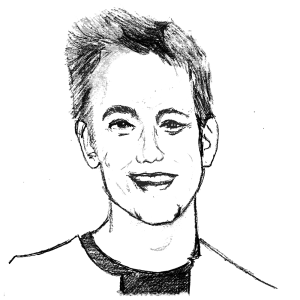 Recently, there seems to be a glorification of science, mathematics, engineering and technology fields in academic circles. From federal funding for engineering programs to Nate Silver’s new website driven by statistical analysis, intellectuals around the United States are smitten with the idea that numbers, calculations and tests deserve our intense admiration. Indeed, the most apparent sign of this obsession is Neil deGrasse Tyson’s cult following and his success reviving the television show “Cosmos.”
Recently, there seems to be a glorification of science, mathematics, engineering and technology fields in academic circles. From federal funding for engineering programs to Nate Silver’s new website driven by statistical analysis, intellectuals around the United States are smitten with the idea that numbers, calculations and tests deserve our intense admiration. Indeed, the most apparent sign of this obsession is Neil deGrasse Tyson’s cult following and his success reviving the television show “Cosmos.”
Georgetown appears to be following this trend as well. The construction of new science facilities, the increased pursuit of scientific grants and even the establishment of the McCourt School of Public Policy with its focus on Big Data show Georgetown’s commitment to science and math, even when it comes to governmental studies.
Yet I always found something puzzling with the Nate Silver approach. His statistical analysis in the 2012 U.S. presidential election achieved fame for its accuracy. His success, however, reveals the limitations of statistics: They can only describe the world as it is and predict how the world will be. They cannot tell us anything about how the world ought to be.
The academic world has two main objectives: discovery of how the world is and articulating how the world should be. So much of our academic pursuits are concerned only with how the world is. This, of course, is true for the hard sciences that aim to discover truths about the natural world. Other disciplines like philosophy, politics or theology tackle morality and lead us into discussions and realizations of how the world should be. Engaging in discussions of normativity help inform us as to how we can aim to shape our society.
Take, for example, the modern study of international relations: Academic debates about which theoretical framework (realism, neoliberal institutionalism and constructivism) best describes the world have consumed the study of international relations. Absent from most of this debate are any moral considerations of how we ought to conduct our foreign policy.
The McCourt School of Public Policy may be the worst offender of this form of normative negligence. In a two-year full-time curriculum composed mostly of elective courses, only one specific course tackles issues of ethics in public policy and development. One-sixteenth of a student’s curriculum is specifically dedicated to the moral component of his or her work.
Maybe this is just a reflection of a larger trend — an abandonment of the bigger questions — and Georgetown is merely following. But Georgetown, with its rich Jesuit legacy and vast experience teaching philosophy and theology, should challenge even the public policy students to engage with the ethical issues and how the world ought to be. Statecraft and good government are not simply about being able to analyze data. Our ability to describe the world will never tell us how it should to be.
In a recent interview, Neil deGrasse Tyson stated that he found philosophy pointless. Specifically, he said, “My concern there is that the philosopher believes that they are asking deep questions about nature and to the scientist, it’s, ‘What are you doing? Why are you wasting your time?’… The scientist says, ‘I have got all this world of unknown. I’m moving on and I’m leaving you behind. You can’t even cross the street because you are distracted by what you are sure are deep questions that you have asked of yourself.’”
He sees philosophy as a force that is holding him back rather than having any intellectual or moral value.
Philosophy is an essential part of our human knowledge. Universities are not just places where smart people come together and analyze the world around them. They are places where professors reflect and discern the moral context of their work and challenge their students to think about how the world is and ought to be. To learn about both constitutes a complete education, and for Tyson to argue that he cannot be bothered with these deep questions and the moral context of his work is shortsighted.
There are truths about our purpose and how we should live. These truths can be discerned, not tested, but that does not negate their importance. We should not trap ourselves by thinking the only questions that matter are the ones that are answered with tests and numbers. Understanding the world that “is” is important, but there is so much more to human life that cannot be understood without asking the bigger questions — the questions that numbers and data are unable to answer.
Kent Carlson is a senior in the School of Foreign Service. COLLEGE ON A HILL appears every other Friday.



















